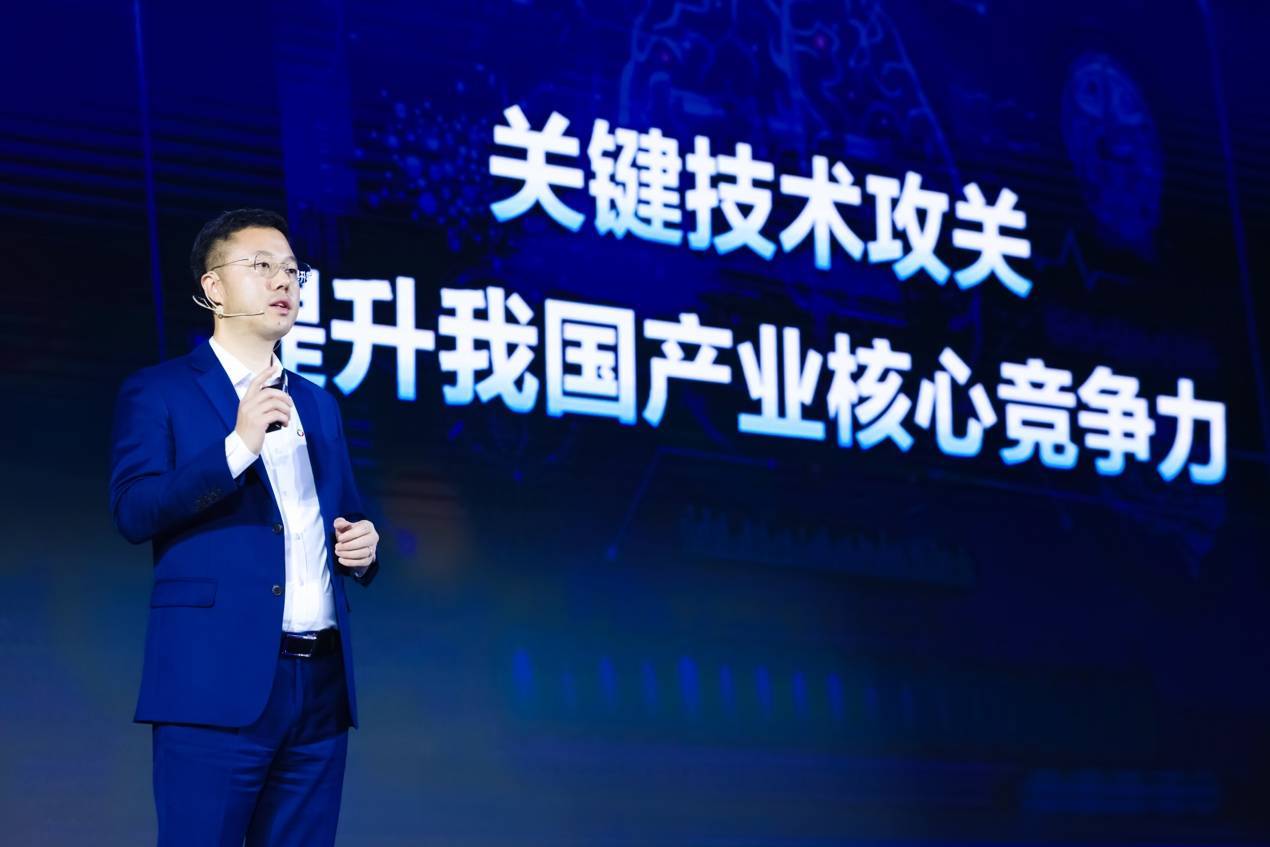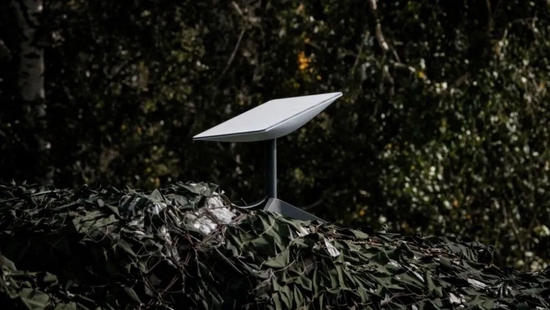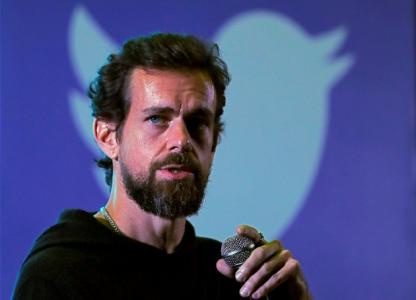your current location is:Home > Finance > depthHomedepth
Taxing the wealthy to subsidize electric cars? California governor lashes out at Lyft
 California Governor Newsom's anger at Proposition 30 is a Lyft conspiracy
California Governor Newsom's anger at Proposition 30 is a Lyft conspiracyElectric vehicles are popularized, but they are expensive and difficult to charge. California is eyeing the rich again, and plans to impose an additional 20-year environmental tax on the rich. But this time, the governor of California is openly opposed to his own party, blaming it as a conspiracy by sharing-economy giant Lyft.
Watching a YouTube video, the pre-roll ad popped up with California Governor Gavin Newsom. "Another boring political ad," I thought at first. But looking at it, I was surprised by the content of the ad, Newsom angered Lyft, a ride-sharing giant headquartered in San Francisco.
As a Democratic governor who is keen on environmental protection, Newsom has publicly opposed his own party and firmly opposed the California Democrat-led referendum proposal to levy environmental taxes on the wealthy. Moreover, not only did he not support it himself, he also spent money on advertisements on the Internet and on TV, and appeared in person to call on California voters to boycott the policy. According to media estimates, Newsom's large-scale political advertising may amount to millions of dollars.
How is this going? Raising taxes on the rich and investing in environmental protection and emission reductions are the consistent governing policies of the California Democrats. Why is Newsom suddenly going against his own party this time? What exactly is so controversial about this policy?
Let’s start with the controversial referendum proposal. On November 8 this year, California will hold federal midterm elections and elections for officials at all levels from state to city, and Newsom himself will run for re-election. In every major election, in addition to the names of officials and congressional candidates, some referendum proposals will appear on the ballot, and California voters will decide some important policies related to their people's livelihood.
Newsom personally appeared on the scene to refute and spend a lot of money on this political ad, which is calling on California voters to vote against the Prop 30 referendum proposal (Prop 30). He blamed the proposal by name for only benefiting sharing-economy giants like Lyft.
 Difficulty charging is still an obstacle to the popularization of electric vehicles
Difficulty charging is still an obstacle to the popularization of electric vehiclesRaise taxes on the rich to do environmental protection
What exactly is Referendum Proposition 30? Briefly, the proposal plans to impose an additional 1.75% income tax on California's wealthy earners with annual salaries of more than $2 million starting in 2023. The time period for this tax increase and environmental protection policy is 20 years, which will continue until 2043, unless California achieves its predetermined energy saving and emission reduction goals ahead of schedule.
According to estimates by the Legislative Analyst Office of California, the program could generate an additional $3.5 billion to $5 billion in annual revenue for the California government. These additional taxes will not go into the state government's budget, but into a special trust fund with clear funding allocations and uses. 45% of the new tax will be used to subsidize new energy vehicles, 35% will be used to build charging stations, and 20% will be used for California wildfire prevention and suppression.
California is undoubtedly the state government in the United States that pays the most attention to environmental protection and emission reduction. In June, the California government's Air Resources Board (CARB) proposed ambitious emissions reduction targets to reduce greenhouse gas emissions to 80 percent below 1990 levels by 2050 and achieve carbon emissions by 2045. Neutralize the target.
How to achieve the emission reduction target? In addition to carbon capture technology, promoting and popularizing new energy vehicles and reducing vehicle exhaust emissions are the most important links. At present, nearly 50% of California's greenhouse gas emissions come from the transportation sector, and in some large cities such as San Jose, it even exceeds 60%.
As the most populous (40 million) and most economically developed state in the United States, California currently has more than 30 million cars, trucks, buses and motorcycles. Although California is the most pro-electric state in the United States, the current number of zero-emission vehicles is still only 1.13 million (in the second quarter of this year, the total number of vehicles in the United States is 2.64 million).
For the development of new energy vehicles, the California government has a clear plan: by 2030, the number of zero-emission vehicles will reach 7.5 million, and in 2035, the sale of all new fuel vehicles will be completely banned, and only new energy vehicles will be allowed. About 1.5 million new cars are sold in California each year.
But the adoption of electric vehicles still faces two major obstacles: price and charging. The price of electric vehicles is still high, far exceeding the same level of fuel vehicles, making it unaffordable for low- and middle-income residents. The cheapest electric car right now is the Nissan Leaf ($28,000), but it only has a range of 200 kilometers. Moreover, even though California has the densest network of charging stations in the United States, because the current charging speed of electric vehicles is slow, compared to the refueling experience, charging is still the main bottleneck for the full popularity of electric vehicles.
Therefore, the 30th referendum proposal is aimed at these two obstacles to the popularization of electric vehicles. 80% of the special tax will be used to popularize new energy vehicles. Specifically, 45% of the funds will be used to provide tax rebates to owners of zero-emission vehicles, and 35% will be used to build more charging stations. Currently, California residents can get up to $7,000 in tax rebates on electric vehicles.
In addition, one-fifth of this tax will be used to recruit and train firefighters. Affected by extreme climate change, California has suffered a historic drought in recent years, and wildfires have ravaged every year. California spends $2 billion to $4 billion every year to fight wildfires. During the wildfire season, California firefighters are exhausted and overwhelmed every year, and even have to use prisoners to help control the fire. Moreover, the raging wildfires have also brought serious air pollution and environmental problems, making it more difficult for California to reduce emissions.
In short, the content of the referendum proposal No. 30 is to protect the environment, popularize electric vehicles and prevent wildfires. The beneficiary groups of this proposal are obvious, and therefore have the support of the California Electrician Association, construction industry unions, fire industry associations and many environmental protection agencies. The ruling Democratic Party in California also announced its support for the proposal, including the mayors of core cities such as San Francisco, Los Angeles, San Jose, and Oakland.
Of course, there are supporters and opponents. The main opponents of the No. 30 referendum proposal come from the business community, including the California Chamber of Commerce, the California Small Business Association, and the California Teachers Association; the California Republican Party firmly resists this tax increase. But the most surprising thing is that Democratic Governor Newsom actually firmly opposes this proposal to save money and protect the environment.
 Sharing economy giant Lyft commits $25 million to push for referendum
Sharing economy giant Lyft commits $25 million to push for referendumLyft is the real big moneymaker
In a political ad, Newsom dismissed Proposition 30 as a “Trojan horse,” saying “this is a conspiracy by some company to grab huge taxpayer subsidies” Proposition 30 looks like a climate change initiative, but It's actually a way for a company to use California income taxes to satisfy its own private interests."
One company Newsom was referring to was Lyft, because the sharing economy giant was the main driver behind Referendum 30. Referendum 30 has raised nearly $40 million in political funding, and Lyft is the top funder of that. Launching a referendum proposal in California requires at least 5% of registered voters to sign up for it (the current threshold is 625,000), and it is impossible to push it without a huge investment.
However, Lyft is not the manipulator, but has been standing in the front, and has not shied away from their donations to the 30 referendum proposal. Lyft CEO Logan Green publicly stated that Lyft will fully support this proposal, because the cause of environmental protection and emission reduction is urgent, and the real beneficiaries of this proposal are the millions of people in California who are harmed by air pollution.
So, why is Lyft spending tens of millions of dollars to support tax increases for the rich to be environmentally friendly? At first glance, this proposal does not seem to have any direct relevance to the shared mobility industry. The original proponent of the proposal was also an environmental agency in Los Angeles.
The real reason behind this is that the California government stipulated last year that the two major shared travel giants Uber and Lyft will be required to achieve 90% of their travel mileage from electric vehicles by 2030, forcing the contracted drivers of the two platforms to switch to electric vehicles. In 2018, that percentage was even less than 1%.
Since the vehicles for shared travel are private cars, Lyft and Uber certainly hope that the California government will provide more subsidies to popularize electric vehicles, rather than put pressure on shared travel companies. Now the No. 30 referendum proposal is to subsidize electric vehicles from the pockets of the rich, so that more ordinary private car owners can afford electric vehicles and facilitate charging facilities. Lyft and Uber are of course happy about this, which is equivalent to reducing their Policy compliance burden.

The tax burden is too heavy for the rich to flee
So what do opponents of the 30 referendum proposal say? The California Republican Party and many business groups pointed out that when the California government set the environmental protection emission reduction target in 2019, it had earmarked $50 billion for environmental protection and emission reduction, including $10 billion in subsidies for zero-emission vehicles and 8.1 billions of dollars in firefighting funding. Now that special funds have been set aside, an additional environmental tax has to be set up, meaningless to increase the burden on California's taxpayers (the wealthy class).
California was originally the most tax-burdened state in the United States, especially for the wealthy. For the rich with annual income of more than $1 million, they not only have to pay California the highest state personal income tax of 13.3% in the United States , but also pay 13.3% of the state capital gains tax (also the highest in the United States) when buying and selling stocks. In Texas, there is not only no state personal income tax, but also no state capital gains tax, only federal taxes. For the wealthy, leaving California can save significant tax dollars.
Tax avoidance is the main reason Musk sold all his California properties and moved to Texas in 2020. Just moving to Texas could save him anywhere from billions to tens of billions of dollars in state taxes (depending on the size of his stock sale). In the past year since becoming a Texas resident, Musk has sold Tesla stock for more than $15 billion.
It’s not just the super-rich like Musk who are fleeing California. Hundreds of thousands of people leave California every year (360,000 last year), and Texas is their top destination. Statistics from the Texas government show that from 2018 to 2021, a total of 161,500 residents from California applied to renew their Texas driver's license.
However, it is speculated that the real reason for Newsom's opposition to the No. 30 referendum proposal is that he is likely to plan to run for president of the United States in 2024, so he hopes to keep a distance from the Democratic Party's radical policies and does not want to be associated with sensitive policies such as tax increases. Project yourself as a moderate Democrat. Because it is very difficult for radical Democrats to win elections at the federal level, especially in some swing states.
Newsom's actions over the past two months have led many to speculate about his political ambitions for the White House. He worked hard to make California a policy banner for environmental protection, feminism, equality, and gun control, and publicly challenged the governors of Texas and Florida, the two Republican strongholds, and even put political ads in Florida to explain his political line.
Democrats disappointed with Newsom
Newsom is reluctant to raise taxes on the wealthy and label himself a radical, but the move also puts him on the opposite side of the California Democratic Party and has drawn a lot of criticism from liberals and environmentalists. Polls show that 74% of Democratic voters support Proposition 30, while 78% of Republican voters oppose the tax increase. Clearly, liberals and conservatives are divided on whether to support raising taxes on the rich to fund environmental protection.
After Newsom ran a political ad against the No. 30 referendum proposal, many California Democratic politicians and environmental agencies expressed surprise and dissatisfaction with Newsom, and even believed that Newsom accused Lyft of behind-the-scenes manipulation of the referendum proposal as a "diversion".
Oakland Mayor Libby Schaaf told the media, "I'm surprised the governor is against this plan. Although I respect him, we are at odds on this matter." San Jose Mayor Sam Ricardo Liccardo refuted Newsom, "Although Lyft will indeed benefit from it, if the air quality is purified and the wildfires are effectively prevented, that is a good thing."
The California Clean Air Association (Coalition for Clean Air) refuted Newsom more mercilessly, saying that Newsom should stop deceiving Californians. Proposition 30 will not directly benefit a company, but to help California popularize zero-emission vehicles. , the beneficiaries are many ordinary people, of course, including shared travel drivers. The agency emphasized that California's current electric vehicle adoption funds are not enough.
"California has some of the worst air pollution in the United States," said Will Barrett, head of the California office of the American Lung Association. "At the heart of Proposition 30 is solving our most difficult challenges."
Judging from the opinion polls in early September, California voters are more inclined to approve the No. 30 referendum proposal, which would increase taxes on the wealthy to popularize electric vehicles. The proportion of support reached 55%, while the proportion of disapproval was only 40%. It seems likely that this proposal will pass the California referendum.
Lyft Continues Funding Referendum
And for Lyft, they've gotten to grips with pushing for the California referendum, and 2020 has been a big hit. That year, while electing the president and lawmakers, California voters also supported a referendum proposal proposed by Lyft and other sharing-economy giants that would allow these companies to be exempt from California’s new labor law and not have to provide regular employee benefits to contract drivers. treatment.
According to California's new contract labor law passed in 2019, sharing economy giants must treat contract drivers as regular employees and give them comprehensive benefits. For the contracted drivers, this means that their future life and work will be effectively guaranteed, so this bill has been supported by the driver's union organization.
But for companies such as Lyft and Uber, this will directly shake the foundation of the sharing economy model, and suddenly adding hundreds of thousands of regular employees' benefits will also lead to a sharp increase in operating costs. As Lyft and Uber lost their appeals to the California government, a referendum was left up to voters as their only solution.
In 2019-2020, several sharing economy giants such as Uber, Lyft, Instacart, DoorDash, etc. invested a total of nearly 200 million US dollars, from social media to online platforms to offline advertising, and carried out overwhelming publicity and lobbying in California. The sharing-economy giants are calling on voters to support giving them an exemption, otherwise California consumers will see a surge in the price of ride-hailing, and even threaten to withdraw from the California market.
Finally, in the California referendum in November 2020, 58.6% of voters supported granting exemptions to sharing economy giants from having to treat contracted drivers as regular employees. The sharing-economy giants have also kept their business models and didn’t have to “deliver on promises” to exit the California market where they are based. Two years later, Lyft is making a comeback, pouring tens of millions of dollars into the referendum 30 proposal.
What’s interesting is that although Uber, another sharing economy giant, will also benefit from the Proposition 30, compared to Lyft’s active investment promotion, Uber has always kept a low profile, refusing to make a public statement on Proposition 30, and did not enter Newsom angry target.
Muffled and made a fortune, this is the land of falling roar.
related articles
Article Comments (0)
- This article has not received comments yet, hurry up and grab the first frame~












